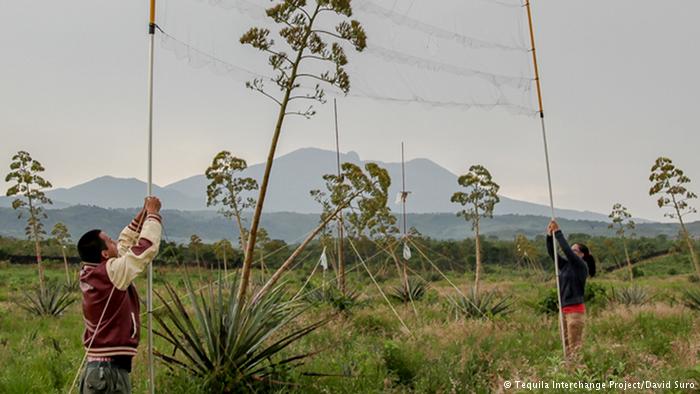Biodiversity data is put to many different uses and access to data can make connections among disparate stakeholders in biodiversity’s benefits. If you enjoy a good margarita, you have bats to thank. Bats and the agave plants from which tequila is made have share a beneficial co-evolutionary history; in feeding on the nectar of the cactus flowers, bats fertilize the flowers by moving pollen among plants. In this way, they have been shaping the diversity of agaves for millions of years.
However, modern agricultural practices to grow agave for tequila are putting this relationship in danger. In a recent article, JRS Grantee, Rodrigo Medellin discusses the threats faced by both the bats and the plants. On large scale industrial operations, farmers harvest the plant before it flowers, reducing the food available for bats; and cropping in monoculture eliminates genetic diversity created by natural pollination, potentially leaving agave susceptible to disease and pests. Working with farmers to build bat-friendly practices could have benefits for biodiversity, and for tequila!

